New weekend challenge moto:
#SystemCrafters (@daviwil) rule 42: "To maximize your learning opportunities, do stupid things [in your computer] that force you to dig yourself out of a hole". 🤓
Source: youtube.com/live/TjMTNSdhUvk?t…
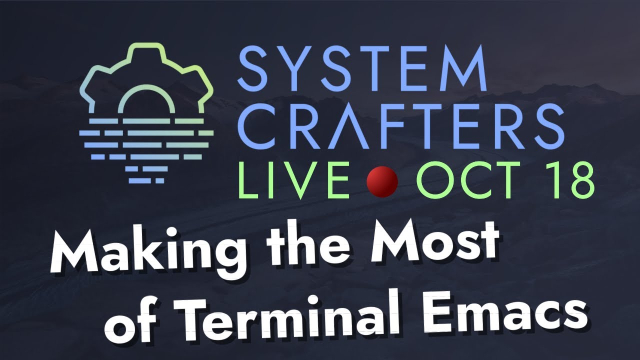
Making the Most of Terminal Emacs - System Crafters Live!
In this stream, we'll discuss some thoughts I've had after using Emacs in the terminal for various tasks recently and then spend some time working on a strea...YouTube
#flibusta #stiver

Создатель онлайн-библиотеки Flibusta Stiver: серверы оплачены, сайт поддерживается и работает в стабильном режиме
19 октября 2024 года создатель онлайн-библиотеки Flibusta Stiver сообщил, что серверы проекта оплачены, сайт поддерживается и работает в стабильном режиме.23 сен...Денис (Habr)
 Medieval Dynasty, mě opravdu hodně chytlo a nemohu se od toho odtrhnout
Medieval Dynasty, mě opravdu hodně chytlo a nemohu se od toho odtrhnout  Lovit, těžit, stavět vesnici. Je to vcelku náročné a všechno chce dost času, ale to budování je uspokojující
Lovit, těžit, stavět vesnici. Je to vcelku náročné a všechno chce dost času, ale to budování je uspokojující  #MedievalDynasty
#MedievalDynasty

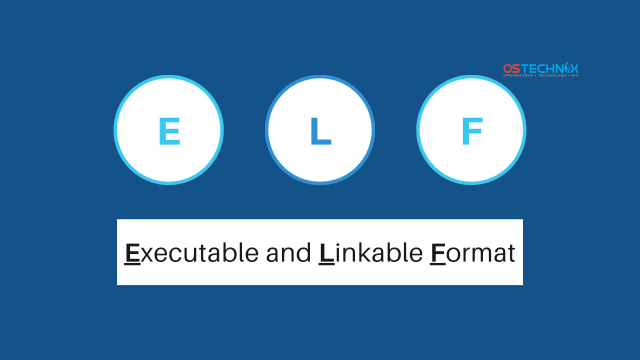
Introduction To ELF In Linux: A Simple Guide To Executable Files
In this blog post, we will discuss what ELF is, how it works, and why it's so important for Linux users and developers.sk (OSTechNix)

hullcaster - terminal-based podcast manager - LinuxLinks
hullcaster is a terminal-based podcast manager built in Rust. This is free and open source software published under the GPL.Luke Baker (LinuxLinks)
Comparison of Samsung Galaxy Buds 3 Pro and Google Pixel Buds Pro 2 - Accessible Android
I’ve had the opportunity to use both of the latest earbud offerings from Google and Samsung: the Pixel Buds Pro 2 and the Galaxy Buds 3 Pro. I've used each ofJohn Dyer (Accessible Android)
Khronos reshared this.
This morning we went to see an exhibition by the wonderful Margot from watercolorpatterns (watercolourpatterns.com/), and it's just insane the precision, dedication and just sheer amount of care and detail she puts into every single one of her watercolors.
And it's all just this wonderfully enthusiastic lady doing everything herself!
Give her a hand if you have the chance, she's wonderful
Je tu taký starší pán a ide na bicykli z Hamburgu... teraz je tu a ide do Istanbulu a potom do Indie. Kamoš @xChaos ? Veľmi mu chutí a vraj je spokojný tak u nás bude denne pokiaľ tu bude. 
edit: dal som mu šišku. 😁
odišiel a dal som si práska a celkom ma hitlo... potom sa vrátil že "I'm messed up from that..." 
edit: kúpil si some sort of HHC na Obchodnej, tak som mu ponúkol no
VOTE EARLY THIS WEEKEND
Good morning. If you live in a state where you can vote early or vote by mail, why not vote this weekend?
Check your state: cbsnews.com/news/map-early-vot…
Voting early is the best thing you can do to help Harris. It establishes a winning narrative which undermines polling manipulation by biased GOP pollsters. It also motivates our team and demoralizes them. Right now, with more than 10 million votes already banked, Dems are up by >1.5 million votes.
VOTE!
Map shows which states offer early voting and mail-in ballots for the 2024 election
Weeks before the 2024 election, early voting by mail or in person will be available in most states — here's a map with more information about early voting options.CBS News
Tim Walz is not "redefining masculinity." Tim Walz is redefining *white masculinity*.
Trump does not have a big lead with men voters. Trump has an *absolutely massive lead* with *white men voters*.
70% of the NFL is Black. 90% of those Black men vote Dem. More Black men than white women think the environment is important. Black men support masking to prevent the spread of Covid. Black men are more likely to support women's reproductive rights. Etc, etc.
usatoday.com/story/news/politi…
1/N

Football coach and cheerleader: How Tim Walz is defining masculinity in 2024
With gender central to the campaign, Democratic VP nominee Tim Walz is taking a different approach to masculinity compared to bro-ness and aggression., USA TODAY (USA TODAY)
The reason this view is so discordant is that so many people's view of Black men is based on gangsta rap - base, aggressive, violent.
Which is funny since, as I learned from a post of yours from many months ago, gangsta rap is more popular among white people than it is among Black people.
@davidnjoku it took me a while but entirely I finally clued into how media portrays black men. Once you start seeing it, it's perversive.
How they show a mug shot if one is available by default. White guy criminals get yearbook photos. words like thug get used a lot. White guys get discussions of their lost future, black guys get only discussions of the crime.
Someone benefits if we're all afraid of black men. It's bullshit. And a lot so called liberals buy into it too.
Are you still using social media platforms? What's your reason?
For Google and Facebook users here's how you can better protect yourself!
Step 1: Stop Facebook collecting SO much data 👉 tuta.com/blog/what-does-facebo…
Step 2: Reduce how much Google knows about you 👉 tuta.com/blog/what-does-google…
All The Data Facebook Collects - And How To Stop This | Tuta
Want to know what data Facebook collects about you? In this guide we outline what data Facebook collects about its users and how they use it.Tuta

Mamutovo
Vítejte na mastodonní instanci Mamutovo! Instance Mamutovo byla vytvořena pro běžné uživatele, kteří touží po klidném prostředí, ve kterém mohou svobodně sdílet své myšlenky.Mastodon hosted on mamutovo.cz
always amused when someone in Ontario talks about "driving across the province in 8 hours"
buddy, Ottawa to Kenora was 21 hours of straight driving last I checked
most people have no idea how damn big this place is unless they've done the trip themselves
@hub and I wouldn't believe how bad most people are at navigation if I hadn't seen it for myself. it was wild how many folks on my recruit course had never touched a map & compass before, and how many still had no idea how to use them afterwards
it's just not a skill that we teach, or that most people learn
Yesterday I finally solved the third hardest discrete bug I’ve worked on in my career. Took about 3.5 weeks of work. At the end, I spent 10 consecutive days doing nothing but investigating this bug, all day, every day. I then took a day off to pick up my folks in Pennsylvania because they wrecked their car (everyone is fine, just car damage). Came back, and yesterday I finally found it.
1/
reshared this
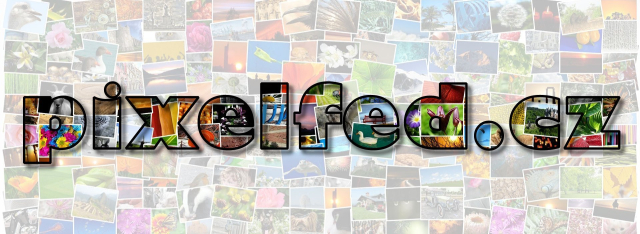
Pixelfed CZ
Pixelfed.cz je platforma pro sdílení obrázků, etická alternativa k centralizovaným platformám.Pixelfed CZ
The fact that space indents won out over tabs actually makes me a little sad.
I just don't see why pressing a key four times is better.
i just press tab and the editor inserts 4 spaces. 🤷
(Now that I'm writing this, it sounds kind of ridiculous. But also I didn't really think about this for the last x years at all, so I guess that's a success?)
Findings are encouraging so far. The only significant issue is that, if I'm running a Wayland session, I encounter the keyboard handling problem that currently affects the use of Orca with all GTK4 applications. However, at least for reading ActivityPub threads, Tuba is very screen reader-accessible.
#Tuba #ActivityPub #gnome #accessibility
After upgrading to #pipewire version 1.2.5. Finally, I am back to an audio system that works as well (or better!) than my old hand-tweaked setup with JACK1 and PulseAudio.
Unlike that system, this one is fully integrated - things using any of the various Linux audio APIs are all visible and routable to each other.
Latency is the same or better as I got with JACK1.
Truly excellent. Good job @pipewire
(and for those who don't know, I wrote JACK1, with the help of a lot of amazing people).
FediVerseExplorer likes this.
reshared this
Maybe I Think Differently Because I See Differently
Ever wondered how our senses shape the way we think? It’s a fascinating concept, especially when you consider how different sensory experiences, like those between sighted and blind individuals, create unique cognitive worlds. As someone who navigates the world without sight, I’ve often wondered how this influences my thoughts and perspectives. After all, if we see the world differently, surely we think about it differently, too. Let’s explore how our sensory experiences shape our cognitive processes and perceptions.
Visual Dominance in Sighted People
For sighted people, vision dominates daily information processing. Research suggests that around 80% of their cognitive processing is tied to visual input, shaping not only how they see but also how they think. This visual dominance influences thoughts, understanding, and the focus on details like colours, shapes, and spatial relationships. Sighted individuals are often adept at processing visual patterns and details, like reading body language or interpreting facial expressions. For them, “seeing is believing,” but for those of us who cant rely on sight, belief comes from a different place altogether.
Cognitive Adaptations in Blind People
Without sight, blind people are forced to turn to other senses to form our mental landscapes. We rely on hearing, touch, and smell to navigate the world. Imagine walking into a room and, instead of scanning visually, you map it out through sound and touch. These senses aren’t just backups; they become finely tuned tools that create vivid mental representations. Over time, we develop exceptional auditory and tactile skills, and our memories sharpen to store all the information we gather through these non-visual cues.
Strengths Born from Different Senses
There are some advantages that come with thinking in a world shaped by sound, touch, and smell. For instance, blind people often excel in auditory tasks, like picking up subtle tones in conversations or identifying people by their footsteps. Memory is another area where blind people shine, as we frequently have rely on it to navigate and interact. Spatial awareness also becomes second nature, built from a blend of sound, touch, and movement that lets us “see” the world in our own way.
Beyond physical senses, abstract thinking often plays a prominent role in how we understand the world. Without the constant influx of visual distractions, our minds find other ways to stay busy—often diving into deeper, more abstract realms of thought. This can lead to an especially profound connection with concepts that aren’t tied to visual cues.
Neuroplasticity: The Brain’s Remarkable Adaptability
Perhaps one of the most intriguing aspects of sensory difference is neuroplasticity—the brain’s ability to rewire itself. When one sense is absent, the brain often repurposes the areas typically devoted to that sense. For blind individuals, parts of the brain usually reserved for vision get redeployed to boost other senses, supporting our enhanced skills and abilities in non-visual realms.
A Unique Cognitive Landscape
This distinct mix of sensory information creates a rich, varied internal world that offers a unique perspective on life. It’s a powerful reminder that our brains are remarkably adaptable, moulding our thoughts to the sensory input we experience. So yes, maybe I do think differently because I see differently. And maybe, that’s the beauty of it all.

wikiloops.com | Free Backing Tracks | Online Jamsession
The open wiki for Backing Track Collaboration since 2011. Easily find Jamtracks missing your Instrument and Play-Along. Join the international Musical Collaboration by sharing your own home-recorded Remixes.wikiloops.com
The reason I hate C so much has very little to do with its unsafety. Sure, that’s a problem, but the thing I really hate is how bad it is for building abstractions. Even simple things like linked lists or dictionaries require exposing data-structure implementation details in ways that make refactoring hard.
If I write C++ (or almost any higher-level language), I can start with a linked list and then decide that I know the maximum size and want better cache usage and switch to a flat data structure. Iterations stay the same and I change little code. Try building something in C where data structures are exposed with a uniform iteration API or indexed addressing depending on their use.
This extends further to trivial things like object destruction. If you look at Linux or BSD kernel code, you’ll often see a pattern of gotos for cleanup, where each step that can fail jumps to a corresponding error path that frees everything that’s been allocated so far. This exists because a lack of abstractions. In C++ or Rust, RAII would call the destructors on the objects as they go out of scope, so your error handling paths are just return failure and the cleanup happens automatically. You don’t need to write it every driver, the classes that own different resources know how to deallocated themselves.
When I write the same thing in C and C++, I end up writing more code in C, but when I then write another instance of similar code in C, I have to copy and paste a load of things because there is no way to properly abstract them out in C. This is the kind of thing that can cause memory-safety errors (because there aren’t abstractions that enforce properties that the programmer knows) but it also leads to a load of logic bugs.
I have no idea why anyone would choose C today. C++ can target the same ABI and generate identical binaries from less (and more reusable) source code. Rust can enforce more properties at compile time automatically. Garbage-collected languages can let you write complex cyclic data structures and correctly manage them (my current favourite approach for a lot of things is to write some core things in C++ and use Sol3 to expose them into Lua for all of the business logic).
> I have no idea why anyone would choose C today.
Some Unix fans seem to really hate C++. One such person, Drew DeVault, once told me this in an email:
> C's simplicity limits you in all the best ways. It forces you to keep your code simple, readable, and maintainable by someone other than yourself.
>
> sr.ht/~sircmpwn/cstyle
>
> Program conservatively.
That was a few years ago, but the design of his newer Hare language suggests he still feels that way.
I chose Rust.
On the Zig vs. Rust debate, people like to focus on memory safety, but Rust's RAII is just as important to writing clean, maintainable code.
There is something truly magical about seeing my GPU driver cleaning up dozens of nested GPU and host objects when the GPU job completes. Always exactly then, never too early, never too late, never leaking anything. That's all thanks to RAII and automatic Drop calls.
`defer foo.deinit()` really doesn't cut it. You have to explicitly write it, and it only works if all code paths free the object at the end. `errdefer` is just a special case, and then the only way to know if you forgot it is by testing with a leak checker. And then the deinit function has to manually deinit all child objects.
All this stuff is just done automatically in Rust. Most of my types don't even implement Drop, or only do something trivial there, because the compiler recursively dropping objects is 99% of the work.
It's *knowing* the compiler is on your side and taking care of all this that makes it magical. If you have to write out the code by yourself, that's more work, and a huge chance for bugs. The compiler is doing some very complex tracking to figure out what to drop when and where. You'd have to do that all in your head correctly without its help.
if you're putting all your trust in the compiler to keep you safe, wouldn't that lead to being taken down the path of bad habits? Surely it's better to learn how to keep your own code safe and not depend all your trust into a compiler?
The take away, for me, is this; if you can't write clean code and need something else to do it for you, learn. Learning makes you better, and being better makes you want to learn more.
That argument is a fallacy, disproven time and time again by C. Not even the most experienced C coders in the world can write correct, bug-free C.
Pretty much everyone who seriously tries Rust understands just how game changing it is in this regard. In fact, not only does Rust do a lot of things for you, it also encourages you to structure the code in a more logical and maintainable and understandable way, and people who learn Rust often report they also become better C coders as a result, which is the exact opposite of what you suggest.
Software is tens of thousands of times more complex than when languages like C were developed, and we *need* assistance from tooling and compilers to help manage that complexity.
KUnifiedPush: KDE's efficient way of delivering notifications to your apps
KUnifiedPush, KDE's client library for the UnifiedPush protocol, has reached version 1.0.0. KUnifiedPush provides a way to deliver notifications instantly to multiple apps on your devices even if the apps are not running.
Ideal for social media, weather and instant messaging apps, it will also contribute to improving the battery life on your mobile devices.
blogs.kde.org/2024/10/19/kunif…
KUnifiedPush 1.0.0 is out!
KUnifiedPush provides push notifications for KDE applications. Push notifications are a mechanism to support applications that occasionally need to receive some kind of information from their server-side part, and where receiving in a timely manner m…KUnifiedPush 1.0.0 is out!

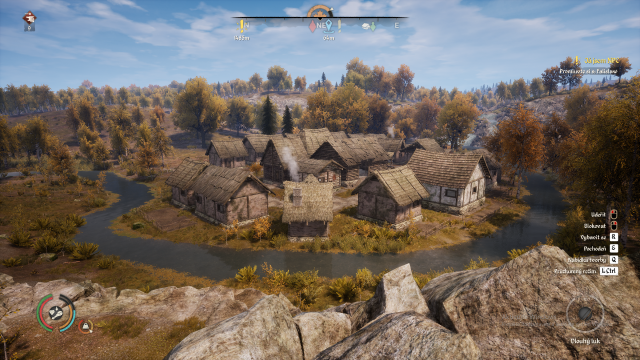
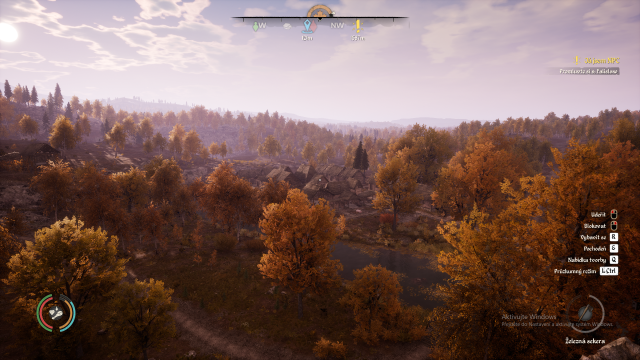
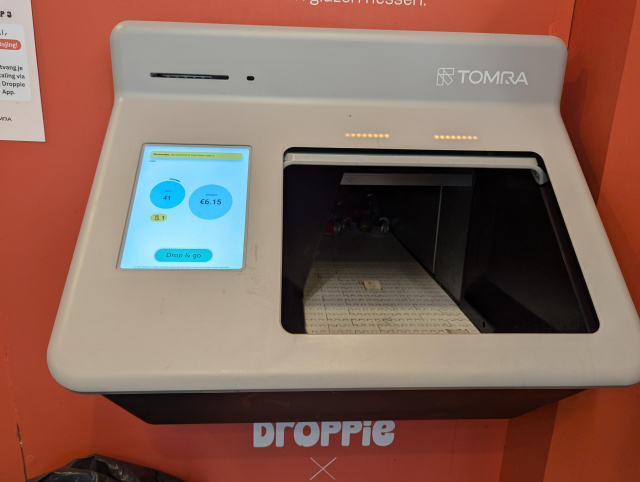

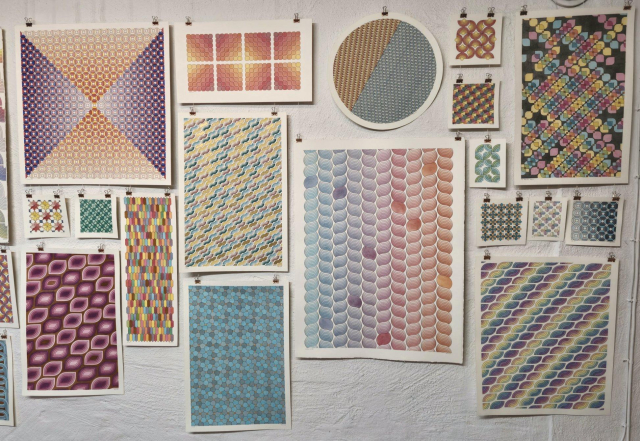
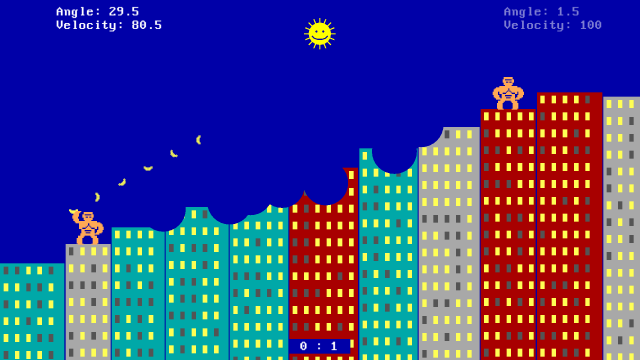
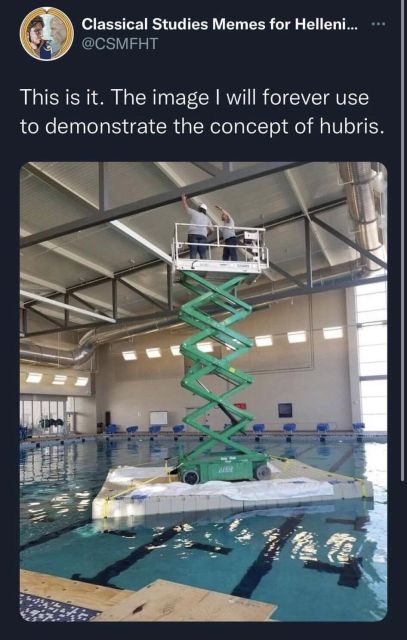
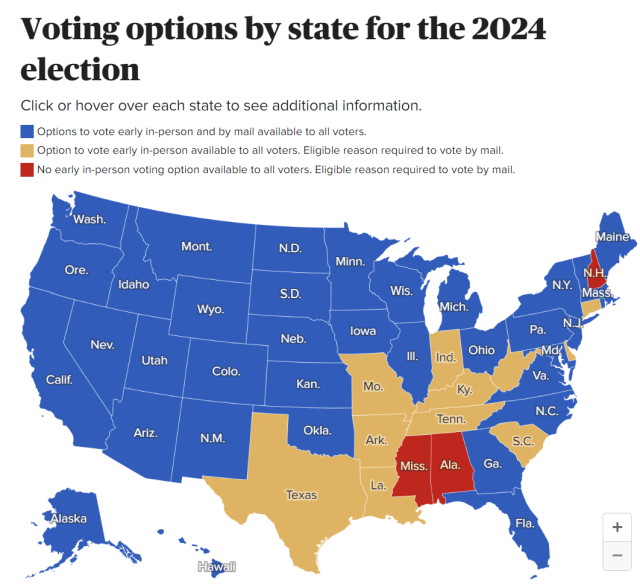
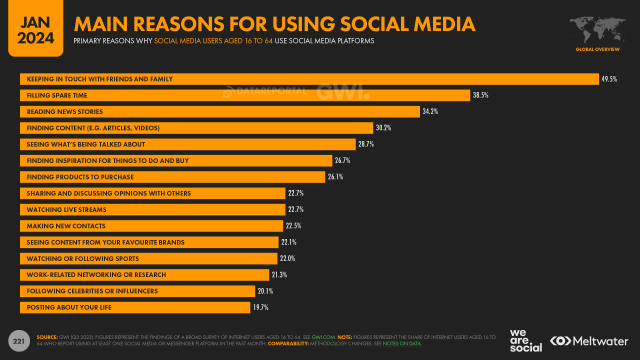


Archos
in reply to Ivan Stloukal • • •Ivan Stloukal
in reply to Archos • • •Zítra vyvenčit psy a to bude moje jediná cesta z postele. Aspoň si to tak plánuju 😁
Archos
in reply to Ivan Stloukal • • •Ivan Stloukal
in reply to Archos • • •Já tam mám zítra tak na 30 minut nějaký update informací na webu České školy a pustím na dálku nějaký extra backup databází na můj soukromý NAS. Jinak mám v plánu jen knížku, kafe a gauč/postel
Archos
in reply to Ivan Stloukal • • •